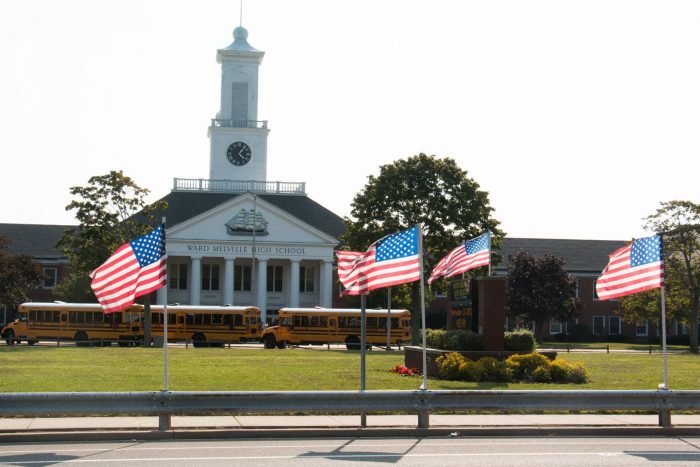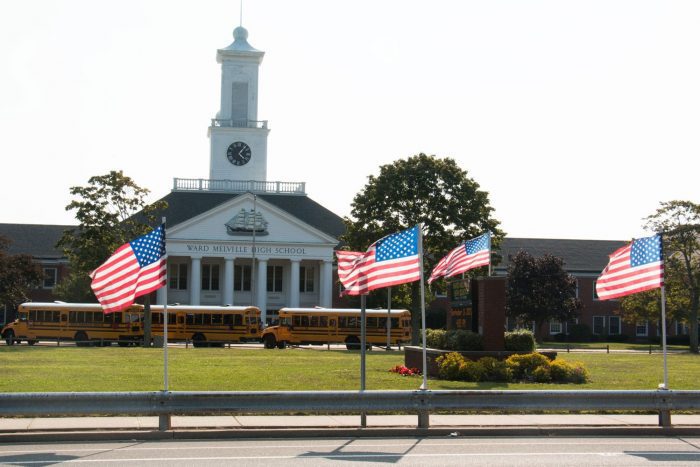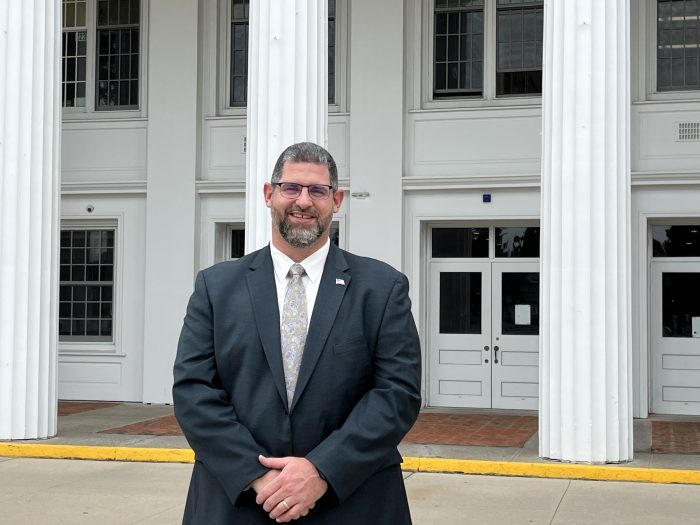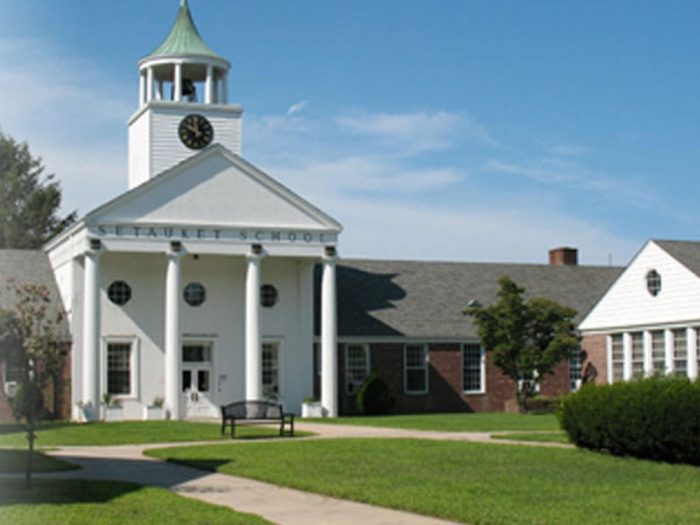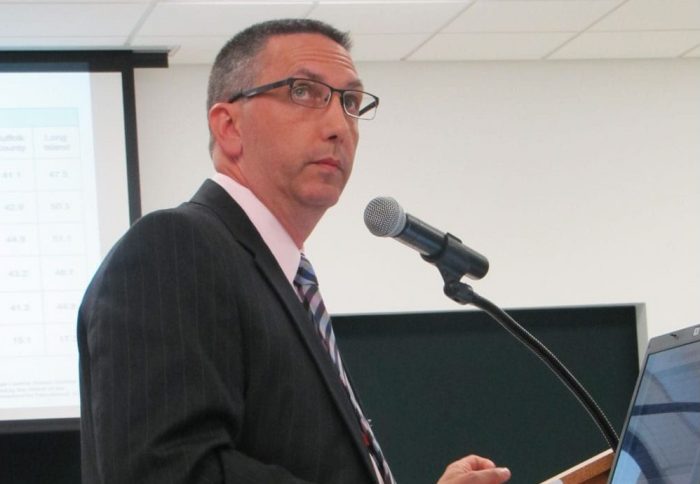By William Stieglitz
Students and parents spoke out at the April 9 Three Village Central School District BOE meeting, arguing for the programs and staff they did not want to see cut. The board had previously announced that in order to balance the proposed budget with later start times for high school students, it would need to remove 14 elementary teachers as well as the fourth-grade Intellectually Gifted (IG) program.
Students who once participated in the IG program, as well as parents of such students, voiced their support for it, saying it provided them with an academic challenge and motivation they were not able to experience before. “Once I joined the IG program, I was toward the bottom of the pack, so it was wonderful to finally get that experience,” said Althea Grubbs Albrecht, who joined as a sixth grader in the program’s last year. “It really prepared me for academic struggles in junior high and now in high school.”
“The teachers I had there, they encouraged my love for reading, they encouraged my ability to think about and consider different ideas,” said new valedictorian Oliver Wu. “Eliminating the IG program without putting anything else in its place, without initiating a new program to give enrichment to students who would benefit from it, is very harmful.” He, along with others, expressed concern that the IG program could be phased out, though Superintendent Kevin Scanlon said this would not happen.
Simultaneously, many parents stressed the importance of later high school start time levels for students’ health. “We all want our children to be academically excelled, but they need health first,” said Jade Zheng, a mother of two kids in the district. “If I have to make a choice, health first.” Others stressed the long timeline of the effort to make the change, citing a petition from 2019 that garnered 1,700 votes.
The proposed cuts to elementary teachers were a concern too, not just for the sake of the teachers, but for the elementary students who would then be forced into larger-sized classes. Oliver Wu said he has been “one of the biggest supporters of start time changes,” but if the board “had to choose between cuts to dozens of staffs and educational programs or the start time, I would support delaying the start time.”
Board members responded that all three concerns were priorities to them, and they did not want students and parents to have to argue for one program over another. “We’re at a point this year, unfortunately,” said Vice President Karen Roughley, “where we need to put the education of our elementary students against start times for the older students and I don’t think that’s a good place to be.” Trustee Stanley Bak also expressed concern that the board could have better communicated the planned cuts beforehand so they came as less of a surprise. “Programs cost money,” he said. “Communication does not.”
The board debated withdrawing from their emergency reserves, a possibility touched on by parents, but according to Scanlon, spending those funds would only cover costs to next year, and would put them at risk in case of an unexpected emergency. “When COVID-19 hit, we spent $7.3 million out of our reserves,” said Scanlon. “If another COVID-like event occurred… we will not be able to do [what we did] in 2020.”
The board also discussed removing start time changes for this year, as it would save over $1 million to fund other programs. With how long parents had been pushing for the change, some members, such as Bak, were hesitant to delay this another year. Referring to the 2019 petition, he said “Here we are in 2025, and I think about those parents… Is 2025 different?” However, others like board President Susan Rosenzweig, felt elementary classes were the higher priority. In a 4-3 vote, the measure passed.
Afterward, the board voted 6-1 to adopt the proposed budget at just over $238 million. This would be an increase of approximately $2 million from last year and mean a $336 increase in tax per household. The proposed budget offers a line-item budget for how the funds would be distributed, though these can still be changed over the next month. The next budget meeting is set for April 30, with the budget hearing on May 13 to discuss final details and the vote on May 20.
“This has been an impossible budget cycle,” said Rosenzweig before the end of the meeting. “It is not pretty, it is not perfect, people will lose, everybody’s going to lose a little bit, but it is the best that we can do.”

